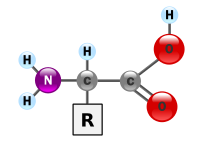
Photo from wikipedia
Abstract Fortifying complementary foods with lipid-based nutrient supplements (LNS) may improve energy and nutrient intakes of infants at risk for undernutrition. We aimed to determine the relative validity of an… Click to show full abstract
Abstract Fortifying complementary foods with lipid-based nutrient supplements (LNS) may improve energy and nutrient intakes of infants at risk for undernutrition. We aimed to determine the relative validity of an interactive 24-h recall (i-24-HR) for assessing the impact of an LNS intervention on dietary intakes of energy and nutrients among rural Malawian 9–10-month-old infants (n 132) participating in the International Lipid‐Based Nutrient Supplements Dose (iLiNS-DOSE) trial. Dietary data were collected for the same day via i-24-HR and weighed food records. Inter-method agreements were estimated overall and by intervention group, using Bland–Altman plots and paired t tests; measurement error models (differential error); and percentage of food omissions and intrusions were estimated. Overall, inter-method differences in mean intakes of energy and most nutrients were not significant. When stratified by group, recalled energy intakes were under-estimated (−368 kJ; P=0·01) in the control but not in the intervention group (−42 kJ; P=0·6). This differential reporting error was related to an over-estimation of recalled LNS (8·1 v. 4·5 g; P<0·001) in the intervention group, compensating for an under-estimation of energy and nutrient intakes from complementary foods. Sources of measurement error in the i-24-HR were under-estimations of starchy staples, meat/fish/eggs and legumes/nuts/seeds (overall percentage agreement between 38 and 89 %; P<0·028); and over-estimations of added sugar, soups/broths and LNS (overall percentage agreement between 138 and 149 %; P<0·001). Common (>30 % eating occasions) omissions were milk/fish/eggs, starchy roots/vegetables and sweetened snacks. Common intrusions were milk/yogurt. Starchy staples and LNS were recalled when consumed (>85 %) (i.e. matched). These results emphasise the importance of considering differential error when interpreting dietary results in LNS trials.
Journal Title: British Journal of Nutrition
Year Published: 2018
Link to full text (if available)
Share on Social Media: Sign Up to like & get
recommendations!